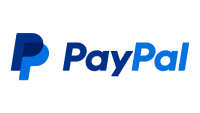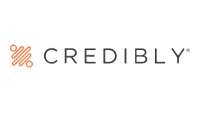Best merchant cash advances
Key takeaways
A merchant cash advance is an advance of cash that will be repaid from a percentage of your sales
The best merchant cash advances are transparent about their fees and repayment schedules
Due to potentially high fees, you should consider other sources of funding before getting an MCA
If you’re running short on cash and funding opportunities, a merchant cash advance (MCA) might be the best option to keep your business running. MCAs aren’t technically business loans, as advances and repayments are taken from a percentage of your future sales.
MCAs also tend to have high approval rates. According to the Federal Reserve Banks’ 2022 Small Business Credit Survey, MCAs have the highest approval rates for business loans, with 90 percent of applications at least partially approved.
That said, MCAs don’t report to credit bureaus or stick to the usual lending laws that cap interest rates. Lenders often charge high fees that translate into some of the steepest interest rates of any business loan.
Ideally, merchant cash advances should be sparingly and for emergencies. Also, be sure to choose from these reputable providers offering lenient requirements and high loan amounts.
Compare the best lenders for merchant cash advances
Lender | Best for | Loan amounts | Bankrate score |
|---|---|---|---|
Lendio | Loan marketplace for MCAs | $5,000 to $2 million | 4.6 |
PayPal | Accessible merchant cash advances | $1,000 to $150,000 for first-time borrowers | 4.2 |
Uncapped | Easy application | $10,000 to $10 million | 4.1 |
SBG Funding | High loan amounts | $10,000 to $5 million | 4.6 |
Credibly | Nationwide availability | $5,000 to $400,000 | 4.6 |


Best loan marketplace for merchant cash advances
Lendio
Rating: 4.6 stars out of 5
Learn morein our Bankrate review
Bankrate's view
Lendio offers a robust marketplace of 75+ lenders where you can compare merchant cash advances to get the best offer instead of comparing companies individually. Lendio’s network of lenders offers a wide range of loan sizes up to $2 million, and you can get repayment terms up to 36 months — which is relatively long for an MCA.
Lendio’s partners do charge factor rates, which often convert into high interest rates. The lowest factor rate charged is 1.08, meaning the fee is your loan amount multiplied by 1.08.
How to qualify
You can qualify with a minimum personal credit score as low as 500, $10,000 in monthly revenue and just three months in business. Those are relaxed qualifications for any type of business loan, making this loan accessible to borrowers who don’t have prime credit.


Best for low revenue
PayPal Working Capital loan
Rating: 4.2 stars out of 5
Learn morein our Bankrate review
Bankrate's view
The PayPal Working Capital loan is similar to a merchant cash advance, as you choose the share of your sales to repay the loan. First-time borrowers are eligible for loans up to $150,000, and repeat borrowers are eligible for up to $250,000.
PayPal doesn’t check your credit at any point, which is a huge plus for borrowers who haven’t built up their credit. PayPal’s revenue requirements are also some of the lowest you’ll find with any business lender.
How to qualify
To qualify, you will need a PayPal Business or Premier account for at least 90 days. You also need to make at least $15,000 in annual PayPal sales with a Business account or $20,000 with a Premier account.


Best for easy application
Uncapped
Rating: 4.1 stars out of 5
Learn morein our Bankrate review
Bankrate's view
Uncapped offers multiple revenue-based loans, though they don’t call them merchant cash advances. All of its loans assess your business based on your past sales. But instead of submitting pages of business financial statements, you simply connect your accounting software to Uncapped during the application process.
Uncapped then uses the data to determine your eligibility and how much funding you can get, generating a loan offer within 24 hours.
How to qualify
Uncapped provides funding to online-based business models, including e-commerce businesses, subscriptions, direct-to-consumer, app-based and software-as-a-service businesses.
While it only requires six months in business, you’ll either need to be an Amazon seller with at least $10,000 in monthly sales or an online business with $100,000 in monthly revenue. Its standard revenue requirement is one of the highest of any lender.


Best for high loan amounts
SBG Funding
Rating: 4.6 stars out of 5
Learn morein our Bankrate review
Bankrate's view
SBG Funding is an online lender offering some of the highest loan amounts for a merchant cash advance — up to $5 million. Many lenders stop funding at the $500,000 mark. You also don’t need to be in a specialized industry to qualify for this loan and only need to provide four recent business bank account statements during the online application process.
Like many MCAs, it charges a factor rate between 1.04 and 1.32, which can lead to high borrowing costs as factor rates get charged upfront rather than calculated with each payment. But SBG Funding does give prepayment discounts if you pay off the loan early.
How to qualify
To get this merchant cash advance, you need a 580 personal credit score and six months in business. It does require a high annual revenue of $350,000. You only need 1 percent ownership in the business to apply.


Best for nationwide availability
Credibly
Rating: 4.6 stars out of 5
Learn morein our Bankrate review
Bankrate's view
As a direct lender, Credibly offers merchant cash advances. It provides repayment terms anywhere from three to 15 months. You will be required to make daily payments, and it does charge a factor rate starting at 1.11.
However, you can get a 20 percent discount on the remaining factor rate if you pay off the loan early. And Credibly’s merchant cash advance is accessible from anywhere in the United States.
How to qualify
You can qualify for Credibly’s merchant cash advance with a personal credit score of just 550. You do need to have $25,000 in monthly revenue ($300,000 annually), according to a spokesperson. The website states you only need $15,000 in monthly revenue, which equals $180,000 annually.
What is a merchant cash advance?
A merchant cash advance (MCA) is a type of financing that bases funding amounts on past sales and repays the loan from future sales. Typically, with MCAs, you pledge a portion of your future sales to the repayments.
The MCA may or may not have repayment terms. Not having repayment terms gives you the benefit of paying back the advance as fast or as slowly as the sales come in. But MCAs aren’t bound by loan usury laws, meaning they can charge whatever borrowing fees they want. Many MCAs have the equivalent interest rates of 50 percent or more.
What features to look for in a merchant cash advance
The best merchant cash advances will give you all the details about your repayments upfront. Since repayments come from your future sales, you’ll want to understand the terms and percentage of sales that you’ll be repaying. Many MCAs also have an aggressive payment schedule. Look at what’s required for these loan features ahead of time:
Eligibility criteria
You first want to look at the advance’s minimum credit and revenue requirements to see if you’re eligible for the financing. The exact criteria can vary significantly, with some advances accepting a 500 personal credit score and $100,000 in annual revenue, while others require revenue as high as $350,000.
Factor rates
Most merchant cash advances charge a factor rate instead of an interest rate, such as 1.10 to 1.50. This rate gets multiplied by the entire loan amount at the beginning of the loan. So, an advance with a 1.40 factor rate that’s repaid within 12 months has an annual interest rate of 40 percent.
To keep your borrowing costs low, you’ll want to find a merchant cash advance with the lowest factor rate charged that’s possible. Since factor rates can quickly add up to high interest, it’s worth your time to compare multiple MCAs.
Repayment schedule: daily, weekly or monthly
Merchant cash advance repayment schedules are usually daily or weekly, which can feel like an aggressive repayment plan. Some MCAs offer a more flexible monthly payment, giving you more wiggle room in your budget to repay the advance.
Percentage of repayment
You want to look at the available percentages of repayment, such as 10 percent to 20 percent, and determine if you can handle that percentage. This percentage will be applied toward paying off your merchant cash advance plus any fees, like the factor rate.
Term lengths
Some MCAs don’t state repayment terms and allow you to repay the advance for as long as it takes to complete repayment from your sales. But, other MCAs set repayment terms of 15 to 36 months, so it depends on the financing company. The longer the terms, the lower each payment will be.
Alternatives to getting a merchant cash advance
While merchant cash advances have a high rate of approvals and lenient requirements, you should use MCAs only when absolutely necessary. Always consider whether you qualify for another type of business loan, as many online lenders offer lenient requirements, like business loans with a 500 credit score requirement or $100,000 or less in annual revenue.
Other types of funding you may want to look into:
Business line of credit. Similar to a business credit card, a business line of credit gives you a predetermined limit that you can typically reuse as you make repayments.
Business credit card. A business credit card is a revolving line of credit and often comes with rewards, like cash back or introductory offers. Credit cards don’t typically have requirements for your time in business or revenue, though you will have to meet its credit requirements. You can either qualify with good to excellent credit or go for a secured credit card, which may be more accepting of poor to fair credit.
Invoice financing. Rather than relying on your credit to approve the loan, invoice financing companies look at your outstanding invoices and base the advanced amount on the likelihood that your clients will pay the invoice.
Business grants. Essentially free money, you don’t have to repay a business grant once you’ve been awarded the amount. But you do need to qualify for the grant, and you’ll be competing with other businesses, making this type of funding competitive.
Crowdfunding. You can raise the funds you need through traditional crowdfunding. Or you can leverage peer-to-peer lending, which raises funds for a loan through a pool of individual investors. You would then repay the loan on the agreed terms.
Bottom line
Merchant cash advances can be a last-resort option for financing if you can’t get funding elsewhere. This alternative form of business financing tends to offer lenient requirements for credit, time in business or revenue with higher approval rates than traditional loans. But before committing to a merchant cash advance, be sure to explore other business loan options. Doing so may save you money in interest or fees if you qualify for another type of financing.
Frequently asked questions
Is merchant cash advance worth it?
Merchant cash advances are worth it if you need emergency funds and don’t qualify for other types of financing. But, due to their high fees and lack of lending regulations, you could end up paying very high interest rates.
Can a merchant cash advance hurt your credit?
A merchant cash advance isn’t technically a business loan, so MCAs are not reported to the credit bureaus. Regardless, you do want to prioritize making payments to keep your account in good standing with the financing company.
What is the interest rate for a merchant cash advance?
Many merchant cash advances will charge you a factor rate instead of an interest rate. This factor rate gets applied to the entire loan amount upfront, meaning you pay the fee whether or not you repay the loan early. The factor rate may be as low as 1.04 or as high as 1.50.
